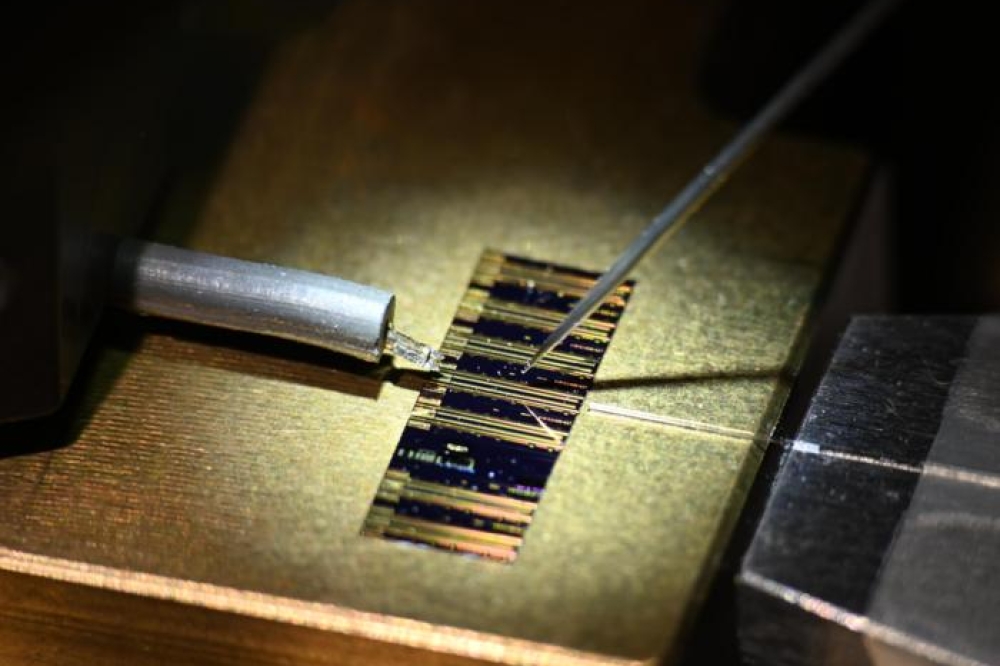News Article
Peregrine Introduces RF Switch for Wireless Infrastructure Market
SPDT switch promises increased network capacity and higher data rates
Peregrine Semiconductor Corporation, a fabless provider of high-performance radio frequency integrated circuits (RFICs), has announced availability of what the company says is the industry’s highest-isolation SPDT RF switch for the wireless infrastructure market.
The UltraCMOS based PE42420 RF switch has high isolation of 64 dB @ 4 GHz—an approximately 20% increase over competing devices on the market. Additionally, the switch features HaRP technology enhancements to deliver high linearity, with an IIP3 of 65 dBm. By providing high linearity and isolation in a single, small package, the PE42420 switch simplifies Digital Pre-Distortion (DPD) loop design, which reduces cost and shortens time to market. This high-performance switch enables increased network capacity and higher data rates in infrastructure applications such as Base Station Transceiver Systems (BTSs), Remote Radio Heads (RRHs), and wireless backhaul; as well as Industrial, Scientific and Medical (ISM) band devices that operate in the 2.4 GHz and 5.8 GHz frequencies.
“As we enter a period of major mobile broadband capacity upgrades, network equipment vendors are challenged to provide mobile operators with flexible, backward-compatible solutions to replace 2G and 3G network products with LTE-ready systems that are capable of supporting multiple standards,” said Mark Schrepferman, director of the communications and industrial product line for Peregrine’s High-Performance Solutions business unit. “At the same time, the demand for higher data rates is requiring improved network performance, which we believe is driving market needs for high-isolation and high-linearity RF components. The PE42420 switch enables equipment vendors to meet these network modernization challenges.”
In order to maximize network performance in next-generation wireless communication systems, high port-to-port isolation is required, to prevent the output signal from spilling into adjacent radio channels or bands. Additionally, because the DPD receiver is shared by multiple Power Amplifiers (PAs) in these systems, high isolation between the multiple paths ensures that the PA that is being sampled is not contaminated by other signals. The 0.1 to 6 GHz PE42420 switch supports 1.8V control logic, enabling the use of lower-voltage, and lower-power, microcontrollers. ESD tolerance of 2kV HBM on all pins eases manufacturing and results in higher reliability of the end product.
The UltraCMOS based PE42420 RF switch has high isolation of 64 dB @ 4 GHz—an approximately 20% increase over competing devices on the market. Additionally, the switch features HaRP technology enhancements to deliver high linearity, with an IIP3 of 65 dBm. By providing high linearity and isolation in a single, small package, the PE42420 switch simplifies Digital Pre-Distortion (DPD) loop design, which reduces cost and shortens time to market. This high-performance switch enables increased network capacity and higher data rates in infrastructure applications such as Base Station Transceiver Systems (BTSs), Remote Radio Heads (RRHs), and wireless backhaul; as well as Industrial, Scientific and Medical (ISM) band devices that operate in the 2.4 GHz and 5.8 GHz frequencies.
“As we enter a period of major mobile broadband capacity upgrades, network equipment vendors are challenged to provide mobile operators with flexible, backward-compatible solutions to replace 2G and 3G network products with LTE-ready systems that are capable of supporting multiple standards,” said Mark Schrepferman, director of the communications and industrial product line for Peregrine’s High-Performance Solutions business unit. “At the same time, the demand for higher data rates is requiring improved network performance, which we believe is driving market needs for high-isolation and high-linearity RF components. The PE42420 switch enables equipment vendors to meet these network modernization challenges.”
In order to maximize network performance in next-generation wireless communication systems, high port-to-port isolation is required, to prevent the output signal from spilling into adjacent radio channels or bands. Additionally, because the DPD receiver is shared by multiple Power Amplifiers (PAs) in these systems, high isolation between the multiple paths ensures that the PA that is being sampled is not contaminated by other signals. The 0.1 to 6 GHz PE42420 switch supports 1.8V control logic, enabling the use of lower-voltage, and lower-power, microcontrollers. ESD tolerance of 2kV HBM on all pins eases manufacturing and results in higher reliability of the end product.































